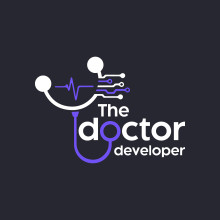Course description
An Electrocardiogram (EKG or ECG) is a fundamental medical diagnostic tool used to measure and record the electrical activity of the heart over a specific period, usually a few seconds to a few minutes. This non-invasive test is widely utilized in cardiology and general medicine to evaluate the heart's electrical patterns and rhythms.
Key aspects of EKG include:
1. **Electrical Activity of the Heart:**
The heart's electrical activity is vital for its functioning. The heart's electrical system generates electrical impulses that coordinate and control the heart's contractions, allowing it to pump blood effectively.
2. **Electrodes and Leads:**
During an EKG, small electrodes (usually 10) are placed strategically on the patient's chest, limbs, and sometimes the precordial region. These electrodes are connected to specific leads, which act as pathways to measure and record electrical signals from different angles.
3. **Recording and Graphical Representation:**
The electrodes detect the electrical impulses generated by the heart and transmit them to the EKG machine. The machine records the electrical signals and displays them as a series of waves on a graph. Each wave corresponds to a specific electrical event in the heart's cycle.
4. **Components of an EKG Waveform:**
The EKG waveform consists of several components, including the P wave (atrial depolarization), QRS complex (ventricular depolarization), and T wave (ventricular repolarization). Analyzing these components provides insights into the heart's rhythm and function.
5. **Diagnostic Purposes:**
EKGs are crucial for diagnosing various heart conditions, such as arrhythmias (irregular heart rhythms), myocardial infarction (heart attack), atrial fibrillation, heart block, and other cardiac abnormalities. They also help assess the effects of medications or cardiac interventions.
6. **Stress EKG and Holter Monitoring:**
Variations of EKG include stress EKG, where the heart's activity is measured during exercise or stress, and Holter monitoring, where a portable EKG device records heart activity continuously over 24 to 48 hours, allowing for longer-term assessment.
7. **Clinical Interpretation:**
EKGs are interpreted by medical professionals, often cardiologists, who analyze the waveforms, intervals, and segments to determine any irregularities or abnormalities in the heart's electrical activity. This analysis guides diagnosis and treatment decisions.
In summary, an EKG is a vital tool in cardiology that helps record and analyze the heart's electrical activity, providing essential information for diagnosing a wide range of heart conditions and guiding appropriate medical interventions.






